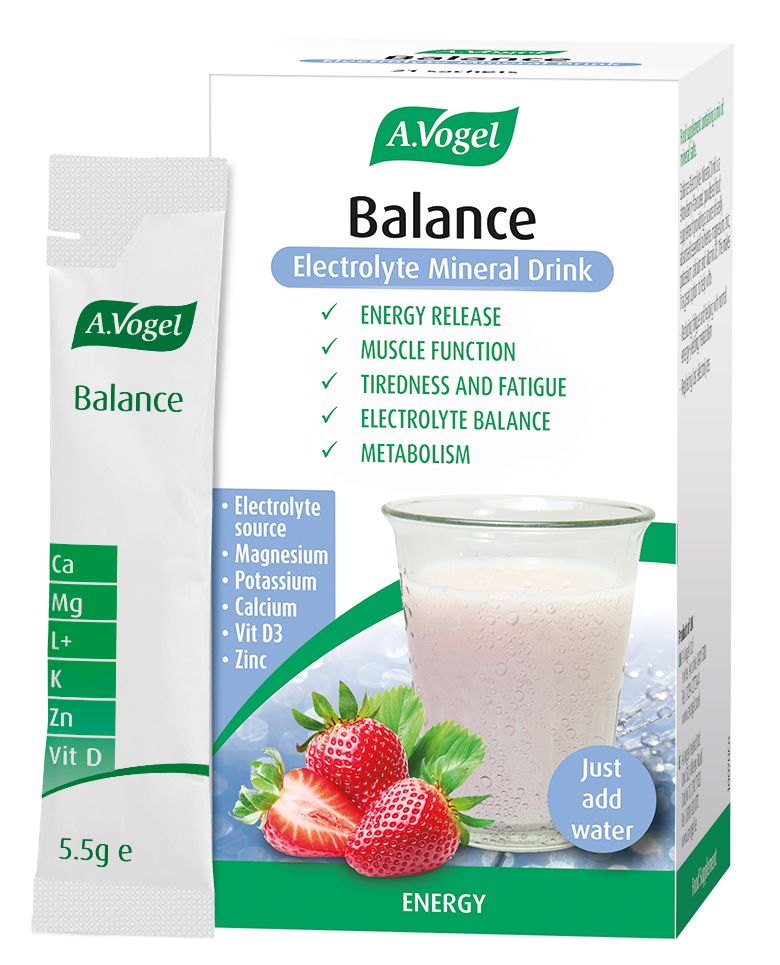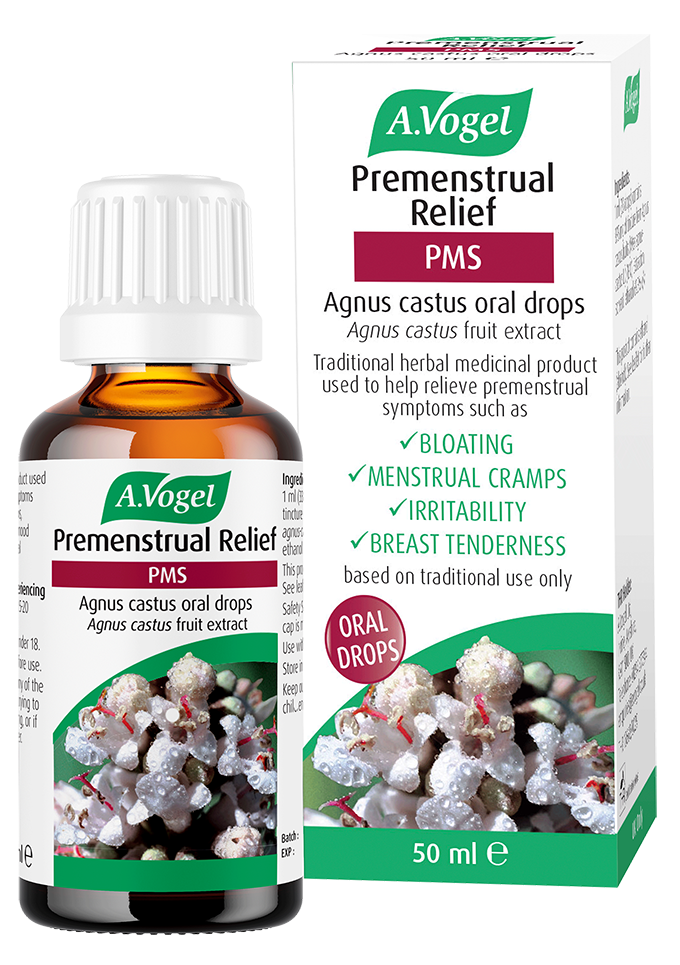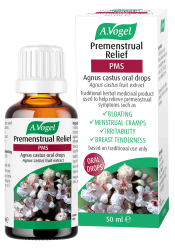What not to eat during periods?
When talking about monthly period symptoms, and those associated with PMS, such as menstrual pain, diet is a vital consideration. Understanding how certain foods can impact these symptoms is crucial. Avoiding specific foods like caffeine, salt, sugar, and alcohol can alleviate discomfort during this time. It's also important to note that individual sensitivities to certain foods can vary, making it essential to identify and avoid those that trigger your symptoms. However, eating healthily at centre stages of your menstrual cycle, for example while on your period, can be a bit of a challenge for some.
Some women can experience monthly cravings which can be erratic and hard to shift, which means you could be tempted by more unhealthy options. However, if we succumb to these cravings, it could have a negative impact, as the foods we eat can directly affect how we look and feel.
To help you out, I’ve compiled a list of the 5 foods you should considering avoiding during your period:
- Caffeine
- Sugar
- Fatty meat & fried foods
- Dairy
- Processed & salty foods
I go on to explore in more detail how some of these foods can exacerbate monthly symptoms, plus I touch on which foods could prove to be better options instead.
5 foods to avoid during your period
1. Caffeine

With fluctuating hormones often leaving your mental state a little out of sorts anyway, the last thing you want to do is introduce a stimulant such as caffeine. This will only risk throwing your body into overdrive and, potentially, cause more erratic mood swings.
Coffee is arguably the most obvious, everyday source of caffeine, but other popular foods and drink options aren't far behind in terms of their content. Tea, chocolate and fizzy drinks including energy drinks can also pack quite a punch.
On the topic drinks, fizzy drinks could be problematic for a number of reasons. As well as the hidden caffeine content, they also have the added issue that could worse bloating – all that gas can soon build up! To avoid this, quench your thirst with plain, still water rather than juice option.
Then, we have alcohol.
Come the weekend, some people may actually substitute some of their food intake with alcohol instead. Unsurprisingly, this dietary component, especially when consumed in excess, could have some detrimental effects when it comes to PMS symptoms.
Alcohol is considered pro-inflammatory in the body but it can also play havoc with your blood sugar and fluid levels. This means it can disrupt your appetite, give rise to cravings affect your mood, but can also leave you feeling rather bloated. Therefore, it's probably one you're better off avoiding if you suffer from any of these tricky symptoms already.
For more on drinks to help manage period cramps, you can visit my blog '6 drinks to help period cramps.'
Simple swap: If caffeine packed coffee is your go-to, I recommend trying Bambu. It's comparable in taste but completely caffeine-free!
2. Sugar

Remember that sugary foods include sources of refined carbs, such as white bread, pasta or rice and not just those obvious sources like cake and biscuits that taste sweet! All of these foods can cause a sudden spike in your blood sugar levels and, in turn, your energy levels. This will most likely feel good at first but, ultimately, your energy levels will crash just as suddenly as they rose, and this will leaving you even grumpier and more lethargic than before.
Sugar is also pro-inflammatory in the body and can potentially exacerbate a whole host of symptoms, including cystitis.
Nowadays, unfortunately, sugar is readily hidden in a vast array of foods and drinks; from breakfast cereals to condiments such as tomato sauce. Plus, drinks don't escape the sweetness either; fizzy or flavoured drinks, plus a number of alcoholic options, are often amongst some of the worst offenders when it comes to sugar content.
Simple swap: If sweet treats are you downfall, try swapping in a more savoury snack to see how satisfied you feel. Some home-roasted nuts or seeds are delicious and the protein and fat content should help to keep you feeling fuller for longer – bonus!
3. Fatty meat & fried foods

When we talk about fat, we need to consider the different types - the saturated fat found in meat is one of particular concern when it comes to PMS symptoms. During one research trial in this field, it was found that pain scores and water retention were amongst some of the symptoms that could be exacerbated by a diet high in saturated fats. (1)
Any meat with visible fat on it will contain a higher dose of saturated fats, as will more processed options such as sausages or bacon (with an extra dose of salt and additives in most cases too). If these options are then fried, it means even more fat is added to the mix!
Red meat, as well as many of the vegetable oils we use for frying, is also high in omega-6 fatty acids. These fatty acids, including arachidonic acid which is more readily found in meat, are thought to contribute to an increase in the production of chemical mediators called prostaglandins, which we know may also have an important role in the onset of period pain.2
Simple swap: If you're in the habit of having meat in most meals, try swapping in some more fish or veggie options. A bit of pre-planning can go a long way, and by breaking some every day habits you might just feel the difference!
4. Dairy

Unless you're careful to include organic dairy only, it's also possible that dairy could have some influence on our hormones. Research has suggested that dairy products may make hormonal acne worse, for example, so it's possible there could be something worth noting there. (2)
However, again, exactly how dairy influences hormones isn't exactly clear, as there could also be some more complicated, underlying inflammatory pathways at play. (3)
However, if you're worried about missing out on some of the benefits that dairy can offer, like providing a good dose of calcium, for example, remember that there are also a number of plant-based sources of calcium too. Some of these include green, leafy veg such as spinach, cabbage or broccoli, beans, peas, lentils, nuts and wholegrains; many of which also have the added bonus of providing additional nutrients such as magnesium, which dairy products don't actually offer.
Magnesium is thought to be especially beneficial for women of child-bearing age; it may help with a number of monthly symptoms from uncomfortable cramps to erratic mood swings, plus many of us are thought to be deficient and in need of more.
Simple swap: If cheese is your go-to for finishing off meals, why not try a homemade vegetarian crumb instead? Simply blitzing up some seeds of your choice (pumpkin or sunflower are good options), with some nutritional yeast, some garlic powder and a pinch of salt makes a delicious and satisfying topper!
5. Processed & salty foods

When we think of processed foods, tinned food and ready meals spring to mind. But, actually, our supermarkets are lined with processed foods nowadays and they can become increasingly hard to avoid – so many packets! A rule of thumb is that, if a product has more than 5 ingredients in its ingredients list, then it's more than likely to be highly processed. Even dairy, as mentioned above, can end up quite processed, especially if we're tempted by 'low-fat' varieties, for example.
Processed and packaged foods are often especially high in salt (not to mention all the excess fat, refined carbohydrates and chemical additives in many cases!). Salt, in particular, is problematic as it may leave you feeling even more bloated, sluggish and uncomfortable; symptoms which many women complain of on a monthly basis.
More processed, refined carbohydrates (which are common in everyday ingredients such as bread and pasta) could also play havoc with your blood sugar levels and, ultimately, your mood – hello cravings and mood swings! So, this is another food group also worth limiting during this time.
Simple swap: Whilst it can be a very gradual process, select one processed item or meal each week that you could swap in for a fresher alternative; be it a packet of crisps or a pasta dish made with a jar of sauce. Over time, you'll get out of the habit of buying them completely and it will all become second nature to you.
Is chocolate good during periods?
Now, I can’t talk about periods, PMS and diet without mentioning chocolate!
The benefits of eating chocolate during your period, especially dark chocolate, extend beyond its taste. Dark chocolate is a source of magnesium, which has been found to reduce the severity of PMS symptoms and alleviate severe symptoms. However, it's important to consume it in moderation to avoid energy crashes after the initial satisfaction.
Read my article on eating chocolate for period pain to find out more.

Foods you should be eating on your period
Throughout this blog I've primarily focussed on foods worth avoiding if you experience monthly symptoms associated with PMS. If you're struggling through your period, though, as a Nutritionist I also wanted to focus on some positivies!
Eating on your period is crucial for managing menstrual symptoms effectively. Foods to eat that have anti-inflammatory properties, such as omega-3 fatty acids found in fish, and antioxidants in ginger, turmeric, and nuts, can significantly alleviate symptoms like cramping and bloating.
Iron-rich foods are also essential during this time to replenish iron stores lost during menstruation, supporting overall health and well-being.
And while spicy foods can cause digestive issues for some, spices like cinnamon, turmeric, and fennel found in these foods are extremely anti-inflammatory might help alleviate common PMS symptoms, though more research is needed in this area.
Incorporating nutrient-rich foods can help manage premenstrual syndrome symptoms and primary dysmenorrhea by providing the body with essential vitamins and minerals. For instance, consuming leafy greens, cruciferous vegetables, and tofu can reduce menstrual cramps and relieve menstrual discomfort. Peppermint tea, in particular, has been noted for its ability to soothe the symptoms of PMS.
So, let’s explore some of these options in more detail:
1. Leafy greens
If you're struggling with monthly symptoms, leafy greens are one food to up your intake of. Leafy greens such as kale or spinach are rich in nutrients including , iron, calciumpotassium, all of which are thought to help limit troublesome monthly symptoms from low energy, to water retention.
Nutritionist recipe suggestion: Apple & Spinach Smoothie
2. Oily fish
Oily fish including salmon, tuna, sardines, trout, anchovies or herring are particularly rich in omega-3. Unlike excess omega-6, omega-3 is thought to be anti-inflammatory in nature and research suggests that upping our intake may help to improve many of the symptoms of PMS – both physical and psychological! (4)
Nutritionist recipe suggestion: Grilled Honey Lemon Sardines with Herbed Rice
3. Wholegrains
Wholegrains are not only nutritious but also a rich source of fibre. There are thought to be close connections between digestive health and uncomfortable monthly symptoms, so it helps to keep things moving! Some examples of wholegrains worth trying include brown rice, oats, couscous, lentils, quinoa and barley.
Nutritionist recipe suggestion: Dried Apricot & Walnut Couscous
4. Bananas
Bananas (and all whole fruits for that matter) are a good source of fibre which helps support your digestion, but fibre also helps to stabilise your blood sugar levels which can have positive effects on your mood and energy levels.
What's more, bananas also have the benefit of being especially rich in potassium. Potassium has an important role to play in muscle health and contractions, as well as fluid balance in the body. Therefore, there may just be lots of reason to stock up - from cramps to bloating!
Nutritionist recipes Suggestion: Healthy Banana Oat Cookies
If you're keen to know more about foods to help, head over to my PMS diet guide now.
Also, if you're keen to top up on many of these key nutrients such as magnesium, potassium or calcium with the help of a supplement, I often recommend Balance Mineral Drink.
A.Vogel Balance Electrolyte Mineral Drink with Vitamin D3, Magnesium, Zinc, Potassium and Calcium.
£22.49 (21 x 5.5g sachets) In Stock
Still suffering from PMS? How to relieve menstrual cramps
Sorting out your diet is often a great way to reduce PMS symptoms, but sometimes it just isn't enough – remember, we are all individuals so it's quite likely that various components of our diet will affect us differently. Keeping a food diary is a top tip if you're really struggling to pin point which foods work for you, or don't for that matter.
Then, if you still feel you need a helping hand to manage your symptoms after addressing diet, why not try Agnus castus? This herbal remedy has been licensed for use in relieving PMS symptoms, including cramps, breast tenderness, bloating, irritability, and mood swings.
Please note that Agnus castus is generally not suitable for ladies on hormonal medication, such as the contraceptive pill or HRT.
Originally published in March 2017, updated in May 2024.













